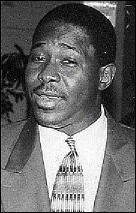The real cause to Jamaica's economic problems
Published: Wednesday | July 8, 2009

Claude Clarke
The Editor, Sir:
In his insightful July 5 contribution, Claude Clarke comes much closer to the real causes of Jamaica's economic problems than in his previous contributions on this subject.
There is certainly a ring of truth in his reference to the fact that energy is not the only reason for the success of the T&T economy "as some would have us believe" and that the "major changes to their macroeconomic arrangements in the 1980s and 1990s" were a significant contributor.
It is heartening to read Clarke's advice to the Jamaican government that "the most valuable thing we could get from that country (T&T) is the lesson of how they managed their economic policies to achieve competitiveness."
This most recent statement must be read in the context of his June 7 contribution in which he asserted, quite erroneously, that the Trinidad productive sector receives subsidised natural gas and that "such subsidies give Trinidad's producers an insurmountable advantage and are incompatible with the fundamental principles of fair trade within a common market."
Energy policy
From a Trinidad perspective, there are three aspects of his most recent comment that continue to disturb:
1) That "the small benefit Jamaica derives from CARICOM trade cannot justify the enormous cost it imposes on our economy; and only a major compensating benefit, such as natural gas from Trinidad at its domestic prices, could provide an adequate justification."
2) The suggestion that Trinidadian interests are citing and mani-pulating Jamaican trade statistics.
3) That what CARICOM needs is a regional energy policy.
Briefly, on the issue of Jamaica's trade with CARICOM, a few points need to be made. Data from the Statistical Institute for Jamaica indicate the following:
Jamaica imported goods valued US$1.68 billion from CARICOM in 2008. Of that amount, US$1.42 billion was in the category mineral fuels, etc. Therefore, 84.5 per cent of Jamaica's imports from CARICOM were categorised by the Statistical Institute of Jamaica as being mineral fuels, etc.;
Jamaica's imports of non-mineral fuels, etc. (which would be mostly manufactured goods) from CARICOM amounted to US$261 million or 15.5 per cent of its imports from the region.
Jamaica's imports of non-mineral fuels from CARICOM, therefore, amounted to three per cent of Jamaica's total imports.
Jamaica's imports of non-mineral fuels from CARICOM amounted to five per cent of Jamaica's total non-mineral fuel imports.
Given the evidence from Jamaica's statistical institution that a huge majority of Jamaica's imports from CARICOM comprise oil products, how valid is Clarke's contention that Jamaica receives only a "small benefit" from its trade with the region?
Second, shouldn't CARICOM be looking to implement a regional natural resources policy such that Jamaica's alumina would receive national treatment throughout the region just as Clarke and others argue Trinidad's LNG should?
I am etc.,
Anthony Wilson
Port-of-Spain
Trinidad



























